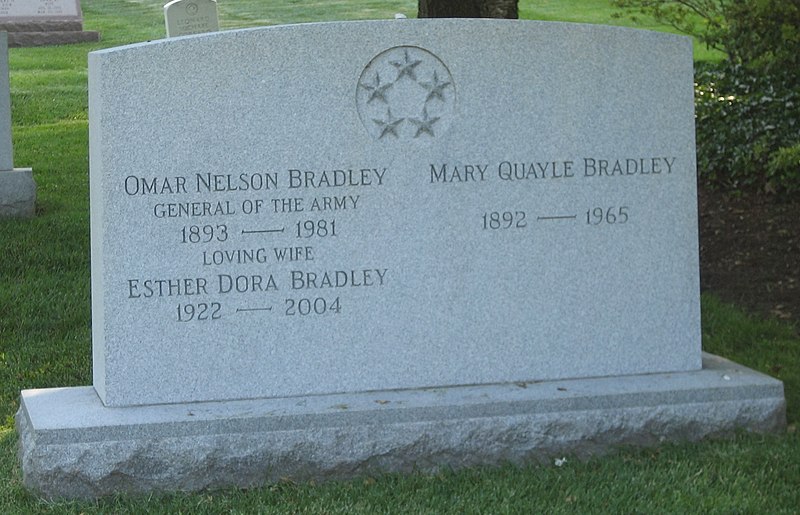
(February 12, 1893 – April 8, 1981)
General of the Army Omar N. Bradley in 1950
Bradley was the first Chairman of the Joint Chiefs of Staff and oversaw the U.S. military's policy-making in the Korean War.
A more complete passage of Bradley's testimony is:
I am under no illusion that our present strategy of using means short of total war to achieve our ends and oppose communism is a guarantee that a world war will not be thrust upon us. But a policy of patience and determination without provoking a world war, while we improve our military power, is one which we believe we must continue to follow….
Under present circumstances, we have recommended against enlarging the war from Korea to also include Red China. The course of action often described as a limited war with Red China would increase the risk we are taking by engaging too much of our power in an area that is not the critical strategic prize.
Red China is not the powerful nation seeking to dominate the world. Frankly, in the opinion of the Joint Chiefs of Staff, this strategy would involve us in the wrong war, at the wrong place, at the wrong time, and with the wrong enemy.
— From testimony before the Senate Committees on Armed Services and Foreign Relations, May 15, 1951.—Military Situation in the Far East, hearings, 82d Congress, 1st session, part 2, p. 732 (1951).
在错误的时间、错误的地点与错误的敌人打一场错误的战争


2004 Presidential debate
During the first Presidential debate of 2004, George W. Bush repeatedly rebuked John Kerry for using Bradley's saying, asking, "what kind of message does it say" to U.S. troops and allies. Speaking of other world leaders, Bush said "They're not going to follow somebody who says, 'This is the wrong war at the wrong place at the wrong time.'" Bush recited versions of the quotation seven times, three times in one response.
Although the saying was prominent in media coverage of the presidential race, practically no story made note of its source.
更多我的博客文章>>>


